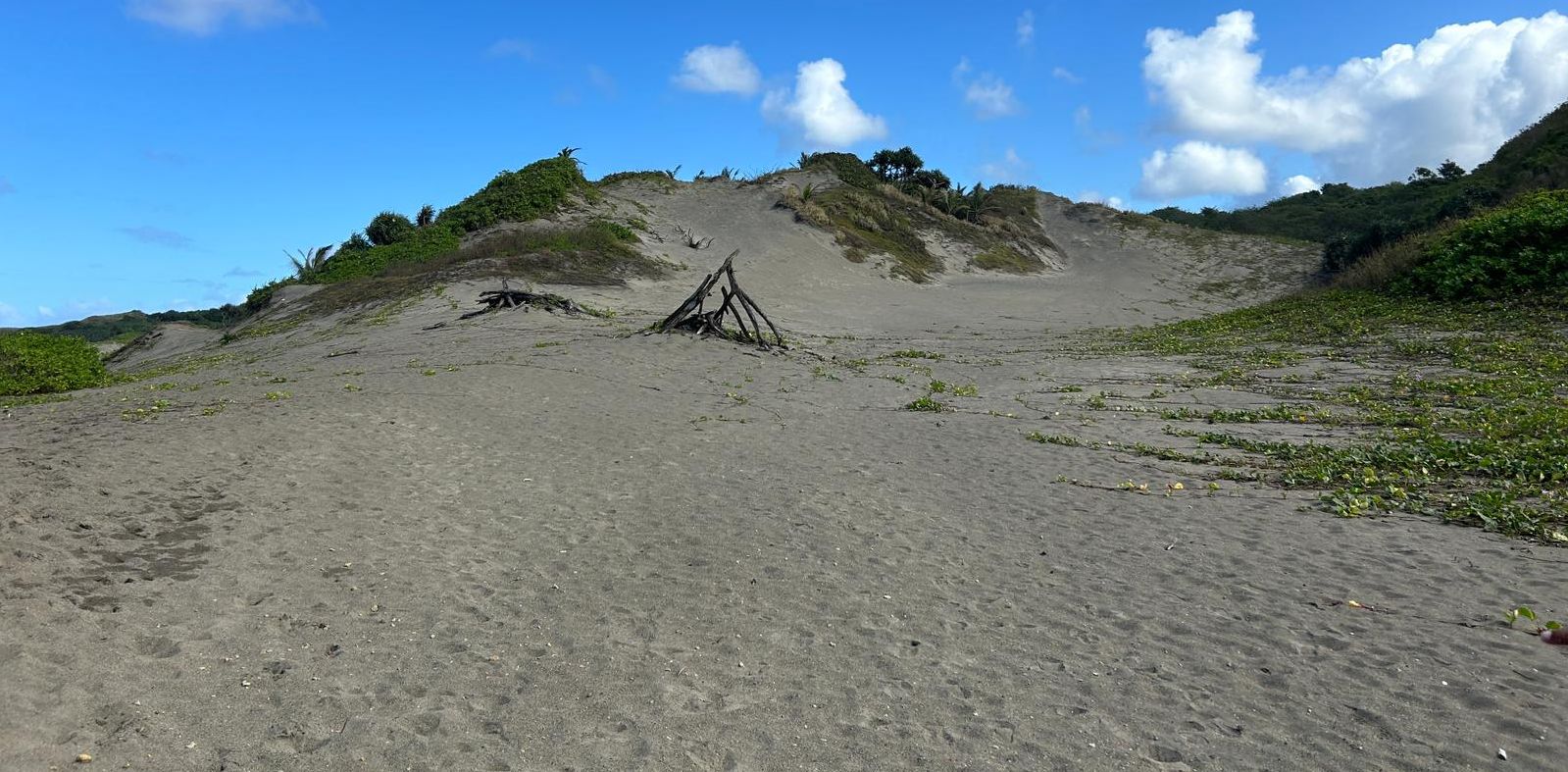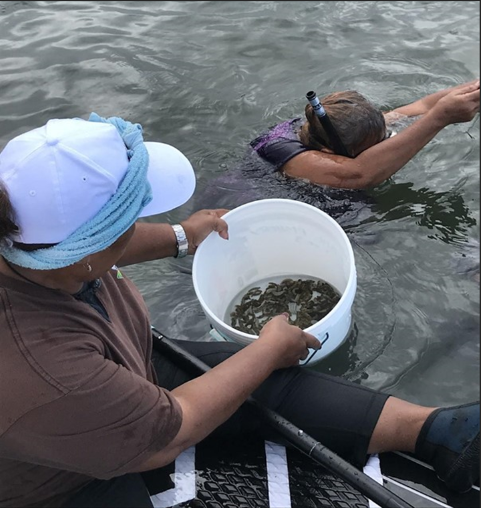Progress update on implementation of 'The Restoration Initiative'
The year 2022 marks The Restoration Initiative’s (TRI) fourth full year of implementation. While the impact of the COVID-19 pandemic still lingers across the world, including for TRI partners, the year was full of successes for programmatic objectives.
As travel restrictions were lifted and further collaboration was made possible, TRI partners were able to coordinate to achieve cross-programmatic goals and learn from one another. Just as 2020 and 2021 were full of transitions and “new normals”, 2022 provided a new opportunity for all TRI partners and implementing organizations to re-emphasize the need for locally-led restoration, community engagement and renewed perspective.
Third and fourth global programme workshops
TRI unites ten Asian and African countries and three Global Environment Facility (GEF) agencies – the International Union for Conservation of Nature (IUCN), the Food and Agriculture Organization of the United Nations (FAO) and the United Nations Environment Programme (UNEP) – in working to overcome existing barriers to scaling up restoration of degraded landscapes in support of the Bonn Challenge. An important part of TRI is the continuous collaboration between the different country teams and the global partners for an effective implementation on the ground. Collaboration is reflected in activities such as exchange of knowledge and building capacities on critical issues, including effective governance, sustainable forest management (SFM), monitoring and adaptive learning, while also providing partners with tools and strategies for developing business proposals in forest and landscape restoration (FLR).
Since the launch of TRI, two face-to-face global events were organized in Naivasha, Kenya, in 2018 and in Rome, Italy, in 2019. One virtual global knowledge-sharing webinar was organized in February 2022 to promote knowledge exchange and capacity development.
To further expand upon cross-programmatic collaboration, a global workshop was held in Nairobi, Kenya on 14–18 November 2022. This meeting was the first in-person meeting since the COVID-19 pandemic started, allowing participants to directly interact with each other to promote valuable learning.
Mid-term review process
To reflect upon the years of success and ways to improve, TRI underwent a mid-term review process in 2022. Findings showcased that progress towards results and project implementation have been satisfactory thus far. Each component of the project varied in effectiveness. Overall, with 74 percent of outputs completed and 83 percent of the expected midterm targets achieved, the consensus is that, although the project is on track to implement its activities and achieve outcomes successfully, the COVID-19 pandemic and consequent extension of countries’ projects necessitate an extension for the global programme. To respond to this emerging context and the needs of country projects, the project steering committee agreed to extend the timeline of the global project through mid-2024. The action plan emerging from the mid-term review includes a review of the global results framework, doubling down on cross-programmatic collaboration and maximizing opportunities to create additional partnerships, and increasing TRI’s visibility and possible opportunities for long-term sustainability. The mid-term review process was helpful to showcase how TRI has been successful so far and highlight critical areas of work to expand on for future years of implementation – to ultimately achieve sustainability in the longer term.
Events at the XV World Forestry Congress
The XV World Forestry Congress was held in Seoul, Republic of Korea, in May 2022. TRI was engaged in two side events, including:
- Development of forest and landscape restoration strategies at different scales to achieve restoration commitments and scale up action on the ground (3 May 2022): The side event shared experiences on the participatory process to develop FLR strategies and demonstrate how stakeholders across different sectors came together to efficiently plan, monitor and evaluate progress made towards the international commitments, and highlighted resource mobilization efforts for FLR.
- The Restoration Initiative: A programme addressing restoration of degraded and deforested lands for the well-being of people and nature (4 May 2022): The side event shared experiences and lessons learned so far. During the session, participants engaged with country representatives who presented examples of the varied technical tools and approaches provided by the programme to plan, implement and monitor restoration activities.
Sao Tome and Principe participation at Expo Dubai
Implemented by FAO and the Government of Sao Tome and Principe as part of the TRI programme, the GEF “Landscape Restoration Project for Ecosystem Functionality and Climate Change Mitigation in Sao Tome and Principe” featured in the recent Expo Dubai 2020 in the United Arab Emirates with the theme “Connecting Minds – Creating the Future”. The attendance of TRI was framed within the partnership between the project and the non-governmental organization (NGO) Alisei, which manages the information and communication aspects of the project in Sao Tome and Principe through an “information hub”.
Knowledge-sharing webinar series
TRI global support partners presented a series of three programme-level webinars on 9–23 February 2022. The webinars provided an occasion for country teams to present their achievements and the challenges they experienced during years of TRI implementation.
Capacity development on forest and landscape restoration for young practitioners in West and Central Africa
Twenty-five young professionals from West and Central Africa completed a 7-week journey from February until March 2022 in building capacity, knowledge and networks for FLR. Selected from over 1 200 hopeful applicants, the 25 individuals took part in an online course offered through a collaboration between FAO and the Yale School of the Environment’s Environmental Leadership and Training Initiative (YSE-ELTI).
TRI Restoration Factory
The TRI Restoration Factory has been created to support the emergence of commercially viable, community-inclusive and climate-resilient businesses that restore ecosystems and preserve landscapes. The TRI Restoration Factory welcomed its first cohort of 13 entrepreneurs in April 2021. The 6-month mentorship programme provided entrepreneurs with personalized guidance in preparing restoration-based investment proposals and helped to scale up their business models through sustainable management. The programme achieved good results. The second cohort of the programme (with co-funding from the TRI and UNEP Climate Finance Unit) recently came to an end in Kenya with 47 entrepreneurs and 48 mentors; more information is available here. This cohort of the programme saw very positive results with 77 percent of the participants completing the programme.
This story is from TRI Year in Review 2022



